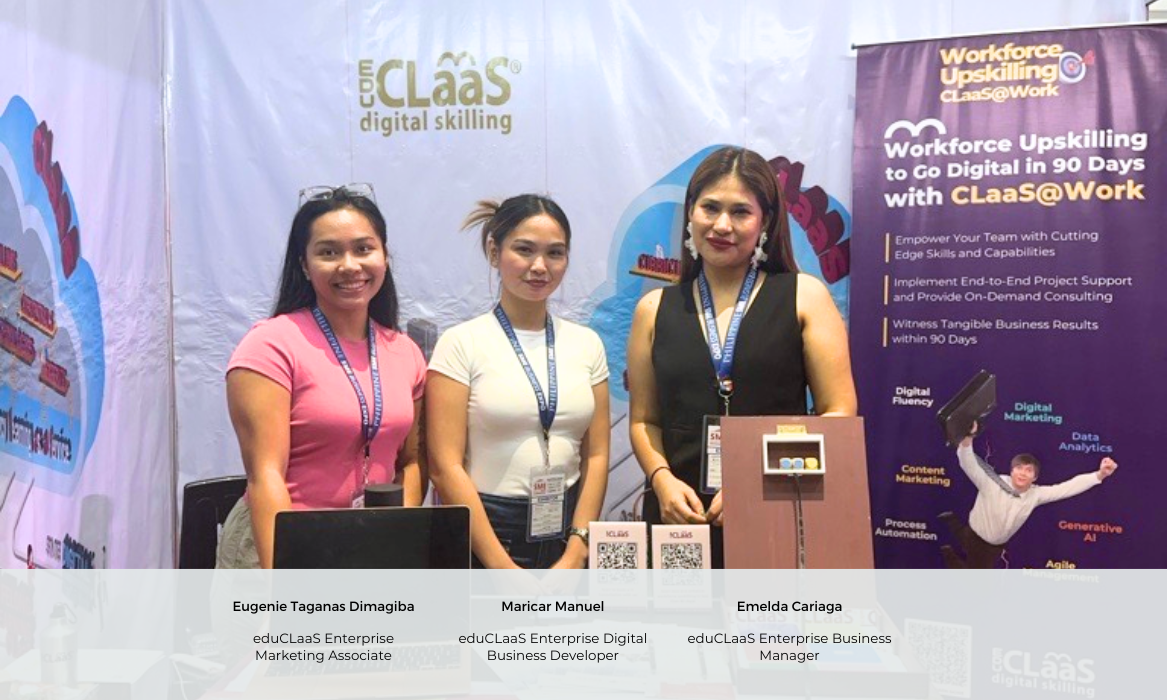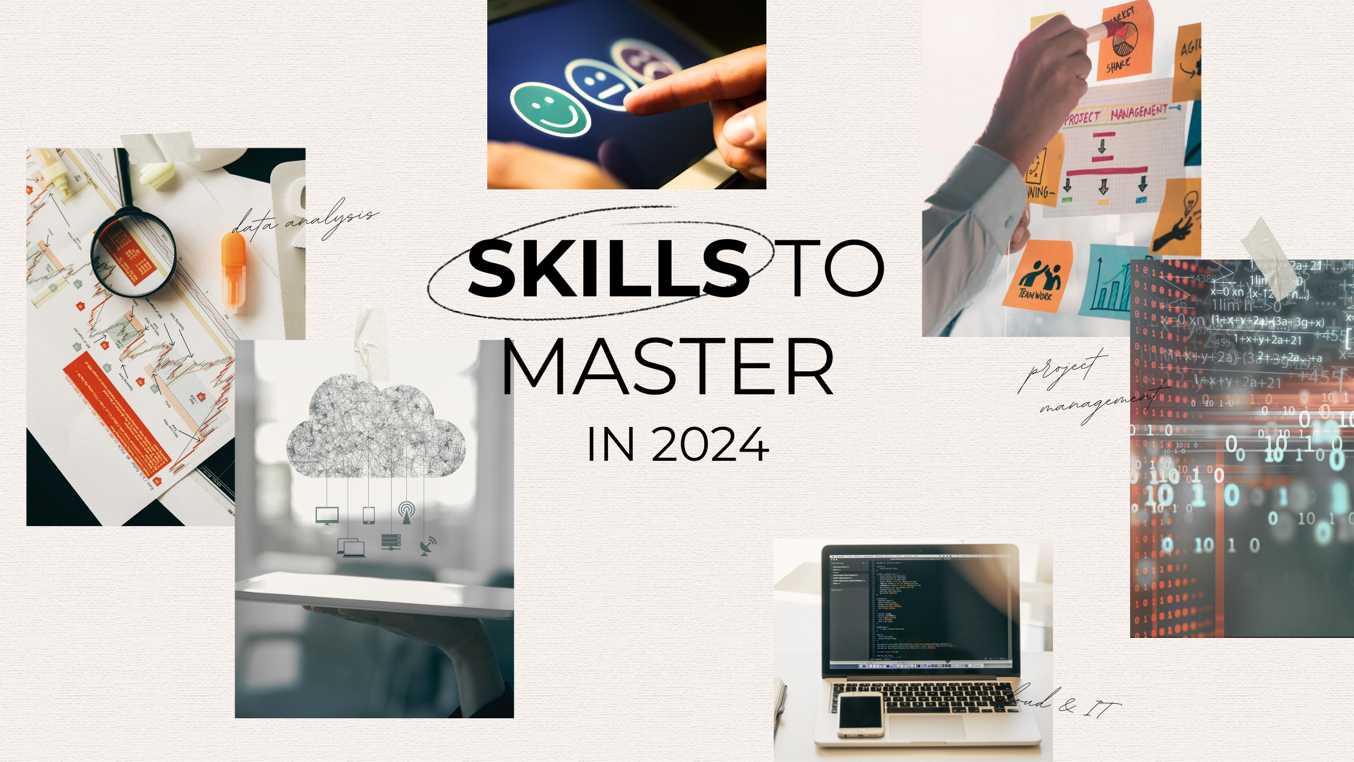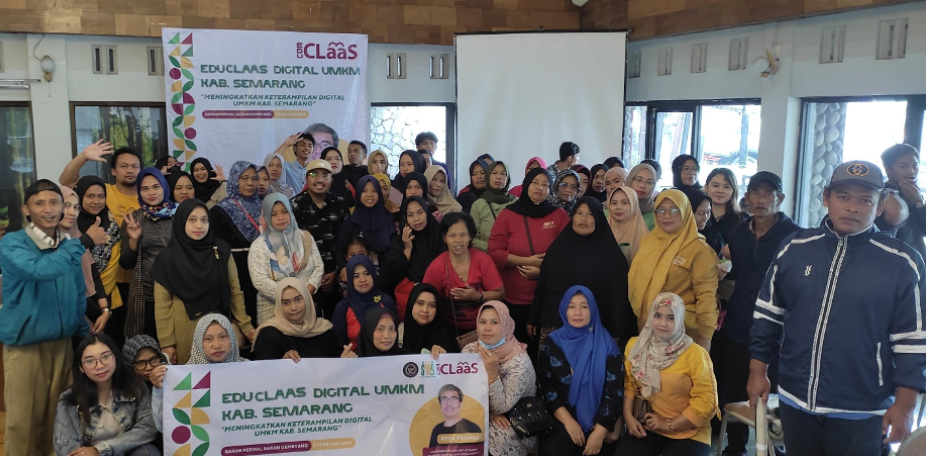Blog
Tech-Savvy and Career-Ready, Essential Digital Skills for Emerging Professionals

Young professionals need to constantly upgrade their skills to stay competitive in the fast-paced job market. As new technologies keep developing, continuous learning becomes important. This blog will discuss the essential digital skills that can contribute to a successful future career and provide strategies for effective skill development.
Table of Contents
- Introduction
- The Importance of Digital Skills
- Essential Digital Skills for Young Professionals
- Data Analysis and Visualization
- Digital Marketing
- Programming and Coding
- Cybersecurity
- Artificial Intelligence and Machine Learning
- Cloud Computing
- User Experience (UX) Design
- Project Management Tools
- How to Develop These Skills
- Online Courses and Certifications
- Practical Experience
- Networking and Mentorship
- Staying Updated with Industry Trends
- Conclusion
Introduction
The workplace is being transformed by digital advancements. Traditional roles are evolving, and new ones are being created. For young professionals, acquiring digital skills is no longer optional but necessary. This blog will highlight the digital skills that are crucial for future-proofing your career and offer practical advice on how to develop these skills.The Importance of Digital Skills
Digital skills are essential across all industries. Whether you’re in finance, healthcare, education, or any other field, being proficient with digital tools and technologies can:- Keep You Competitive: Digital skills make you more attractive to employers.
- Increase Efficiency: Using digital tools can streamline your work and boost productivity.
- Enhance Problem-Solving: Being digitally literate improves your critical thinking and problem-solving abilities.
- Help You Adapt: As industries change, digital skills enable you to adapt to new tools and methods.
Essential Digital Skills for Young Professionals
Data Analysis and Visualization
Data is the backbone of modern business decision-making. Understanding how to collect, analyze, and interpret data is crucial for driving informed decisions.Key Tools:
- Excel: A fundamental tool for data analysis and manipulation.
- Tableau: For data visualization and creating interactive dashboards.
- Python and R: Programming languages used for advanced data analysis.
- Enroll in online courses (e.g., Coursera, Udemy, eduCLaaS).
- Participate in data analysis projects or internships.
- Practice with real-world datasets.
Digital Marketing
Digital marketing is essential for reaching and engaging with customers in the digital age. It encompasses various strategies, including SEO, content marketing, social media, and email marketing.Key Tools:
- Google Analytics: For tracking and analyzing website traffic.
- Hootsuite: For managing social media campaigns.
- Mailchimp: For email marketing campaigns.
- Take online marketing courses.
- Gain practical experience through internships or freelance projects.
- Stay updated with digital marketing trends and best practices.
Programming and Coding
Coding skills are valuable not only for IT roles but also for understanding the technical aspects of various projects and enhancing problem-solving skills.Key Tools:
- Python: Versatile and widely used in web development, data analysis, and automation.
- JavaScript: Essential for web development.
- SQL: Crucial for database management.
- Enroll in coding bootcamps or online courses.
- Practice through projects and coding challenges.
- Contribute to open-source projects.
Cybersecurity
With the rise of cyber threats, cybersecurity skills are in high demand to protect sensitive information and ensure the integrity of systems.Key Tools:
- Network Security: Protecting data during transfer.
- Information Security: Safeguarding data from unauthorized access.
- Ethical Hacking: Identifying and addressing security vulnerabilities.
- Obtain certifications (e.g., CompTIA Security+, Certified Ethical Hacker).
- Participate in cybersecurity competitions.
- Stay informed about the latest security threats and solutions.
Artificial Intelligence and Machine Learning
AI and ML are revolutionizing industries by automating tasks, improving decision-making, and creating new opportunities for innovation.Key Tools:
- Machine Learning Algorithms: Understanding how machines learn from data.
- Neural Networks: Key to deep learning and advanced AI applications.
- Natural Language Processing (NLP): Enabling machines to understand human language.
- Study AI and ML courses from reputable platforms.
- Work on AI projects and build machine learning models.
- Follow AI research and developments.
Cloud Computing
Cloud computing offers scalable and flexible solutions for data storage, processing, and software deployment. It is integral to modern IT infrastructure.Key Tools:
- Amazon Web Services (AWS): Leading cloud service provider.
- Microsoft Azure: Popular for enterprise solutions.
- Google Cloud Platform (GCP): Known for its data analytics and machine learning services.
- Complete cloud certification programs (e.g., AWS Certified Solutions Architect).
- Gain hands-on experience by deploying applications on cloud platforms.
- Understand cloud security and best practices.
User Experience (UX) Design
UX design focuses on creating intuitive and enjoyable experiences for users, which is crucial for product success.Key Tools:
- User Research: Understanding user needs and behaviors.
- Wireframing and Prototyping: Creating and testing design concepts.
- Usability Testing: Ensuring the product meets user expectations
- Take UX design courses and bootcamps.
- Work on design projects and gather user feedback.
- Stay updated with UX trends and best practices.
Project Management Tools
Efficient project management is key to successful project completion. Familiarity with project management tools can enhance productivity and team collaboration.Key Tools:
- Trello: For visual task management.
- Asana: For comprehensive project tracking.
- Jira: Popular among software development teams.
- Use project management tools in real or simulated projects.
- Obtain project management certifications (e.g., PMP, Scrum Master).
- Learn about different project management methodologies (e.g., Agile, Waterfall).
How to Develop These Skills
Online Courses and Certifications
Online courses are a flexible way to learn new skills. eduCLaaS offers a wide range of courses that can help you at various skill levels. Certifications from recognized institutions can also boost your resume.
Tips:
- Choose courses you are interested in.
- Balance theoretical knowledge with practical projects.
- Stay committed and set aside regular study time.
Practical Experience
Gaining hands-on experience helps in owning digital skills. EduCLaaS programs encourage active learning by allowing students to implement their knowledge in real-world situations. Developing a portfolio that exhibits their work proves beneficial when showcasing their abilities to potential employers.Tips:
- Seek opportunities that align with your career goals.
- Don’t shy away from challenging projects—they offer the most learning.
- Document your projects and the skills you utilized.
Networking and Mentorship
Connecting with professionals in your field can provide insights, advice, and opportunities. Attend industry events, join online forums, and participate in professional networks. Finding a mentor can guide your career path and help you navigate challenges.Tips:
- Be proactive in reaching out and building relationships.
- Offer value in your interactions, such as sharing resources or insights.
- Be open to feedback and willing to learn.
Staying Updated with Industry Trends
The digital landscape is constantly changing. Follow industry blogs, join webinars, subscribe to newsletters, and engage with thought leaders on social media. Staying informed about the latest trends and technologies ensures your skills remain relevant.Tips:
- Allocate time each week for reading and learning about industry developments.
- Participate in online communities and discussions.
- Experiment with new tools and technologies to stay ahead.
Conclusion
To future-proof your career, you need to be proactive about learning and skill development. Focus on in-demand digital skills like data analysis, digital marketing, programming, cybersecurity, AI, cloud computing, UX design, and project management. Stay committed to continuous learning, gain practical experience, and adapt to the future of work with confidence.
By investing in your skills today, you can secure a prosperous career tomorrow. If you’re interested in learning more about how to develop these skills or want to discuss your career path, feel free to book a consultation with us! We’re here to help you succeed.













































